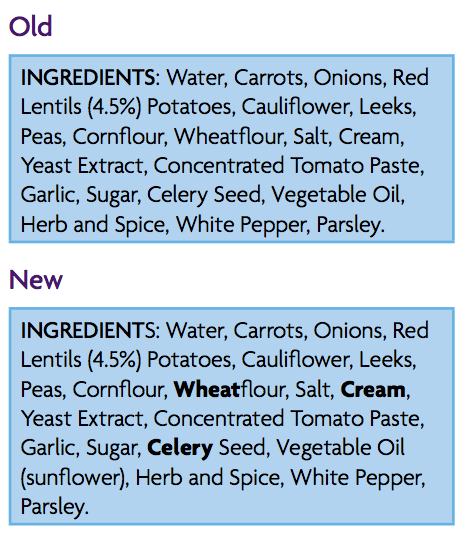Those of you who followed my old blog, Mamacook, will know I exposed my son to a wide range of foods prior to the age of 1 including nuts. He would regularly have peanut butter on toast.
It was with a sense of frustration I saw the recent coverage that feeding children nuts early in weaning helps prevent food allergy. I am pleased research is going into prevention but I'm more encouraged into the research into cure.
Prevention doesn't help people already in our position. Also prevention sadly isn't great at working. People are told vaccines prevent illness, yet many chose not to have them. People are told to avoid heavily processed high fat foods for health reasons and they don't, everyone knows smoking causes cancer, yet people still smoke. And people, like me, did everything within their power to avoid allergies developing, including breastfeeding alongside weaning to the age of 13 months and it still happened.
What might not be obvious to some people is my son is now the second person I know who have developed an allergy after happily eating the food for years. The other person I know developed life threatening allergies, suddenly in adulthood. This isn't just something which appears as soon as you start weaning. I ate nuts regularly during pregnancy and breastfeeding as well with no ill effects. So just because you or your child doesn't have a food allergy today, you might have one tomorrow.
I'm really encouraged by the work on gut microflora. As a food scientist I talk to a lot of microbiologists and what's clear is the microbiology of the gut is an expanding area of research and increasingly it seems that curing infection, obesity and allergies can be influenced by what's going on in your gut.
There are also increasing areas of research in probiotics which is looking promising and would make sense if the gut microflora theory comes good.
But this post is a plea. Food manufacturers have, in the main with the review of labelling forced by the Food Information for Consumers Regulation (FIC) really thought about what risks there are in their factories, for this, I thank you. Additionally if you are allergic to one or more of the 14 allergens identified by the EU, these are now highlighted in the ingredients list (normally in bold). It's trickier for coconut which is unusual and not identified but it is reasonably easy to guess which foods might contain coconut so it's not quite so hard. I have noticed though that with the new labelling laws shopping is a quicker process.
 |
| It's now easier to see at a glance which common allergies are in a product recipe |
But catering and restaurants are still a massively difficult area even though the law changed as part of the FIC on 13th December. Few people know that they have to inform you of what potential allergens are in foods, many restaurants, coffee shops etc are at worst unaware, at best not prepared to consider serving a consumer with a nut allergy. I am going to put this simply, 1 in 12 children now have a food allergy. If you are not allergy aware, you not only lose their custom but their siblings and parents.
So stop it with the blanket statements. If you are using peanut products widely in your kitchen, explain that to me and I'll probably eat elsewhere (although unless it's part of your cuisine you are cooking, I'd ask why that was the case), if you're not sure about your staff ability to interpret the request, it's not an excuse, train them better. If you don't understand the supply chain of your ingredients, I can understand that for a small retailer but get better at it. Ask your suppliers and if they're not good at giving you information, go elsewhere or watch nearly 10% of your custom go elsewhere instead.
School canteens to voluntary food provision like cake fairs, from major chains to independent coffee shops, I urge you all, how would you feel if it was your child? No, I'm not being awkward, no, I'm not being fussy, this is my child's life.

My DD has peanut allergies, and I also BF to one year and ate peanut butter throughout. My son (4) has just become lactose intolerant (like his mama) and I am gluten intolerant. It's getting more complicated to feed all of us! Peanuts are clearly marked on all products here in Canada but I would like to see better marking of milk and gluten. We end up eating pretty much only whole foods, and while it is good for us, it can be limiting from the perspective of a child!
ReplyDeleteI suppose I'm lucky that I do know how to cook and most of my trolley is fruit, vegetables, dairy, meat and fish and quite little processed foods. I do empathise though, the really tricky thing for me is eating out.
DeleteAs it happens I spoke to my son's out of hours carer who was wondering what to do about "may contain". I would say the vast majority, say 80% would be fine for my son to eat, the others maybe not. It would be factories where they don't do lots of wet cleaning I would be more concerned about like cereals, biscuits and chocolate. That said, I don't take the risk when it does say "may contain" but not everyone does the same. Unfortunately working in the industry, I do know there is bad practice out there but I also know in some circles, there is excessive caution.